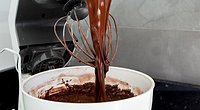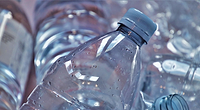Testing Finds High BPA, Glycidol Levels in Canned Tuna, but Low Mercury Content

Image credit: azerbaijan_stockers via Freepik
A recent study of canned tuna packed in oil, commissioned by Swiss consumer watchdog group Saldo, revealed toxic chemicals bisphenol A (BPA) and/or glycidol in all of the analyzed tuna products. On the other hand, mercury and 3-MCPD were not found at levels high enough to cause concern.
Saldo reports that it purchased canned and jarred, pink and white tuna products and sent them to an independently commissioned laboratory for analysis. The tuna products were packed in olive oil or sunflower oil.
Despite “BPA-free” label claims, all ten of the canned tuna samples contained BPA, a chemical that is widely accepted to cause damage to the human reproductive and immune systems. In April 2023, the European Food Safety Authority (EFSA) lowered the previously established tolerable daily intake (TDI) for BPA by 20,000 times—establishing a new TDI of 0.2 nanograms per kilogram (ng/kg) of bodyweight per day—after an extensive literature review identified immunotoxic effects. Moreover, the European Commission is moving toward a total ban on BPA in food contact materials.
In all ten of the canned tuna samples, levels of BPA exceeded the threshold of what is considered safe for human consumption (based on the new EFSA TDI). The samples with the highest levels of BPA contained 20–50 times more than what is considered safe. Canned tuna from Aldi explicitly claims to not have BPA in its packaging, but testing suggests that the BPA found in the tuna migrated from the coating of the cans. Regarding jarred tuna, only two products were free of BPA.
Glycidol proved to be an issue in jarred tuna. Analyses revealed tuna products to contain up to 120 micrograms (μg) of glycidol per kg of product. According to EFSA, there is no safe levels for glycidol, as the chemical is considered carcinogenic. Glycidol can be produced during the processing of oils.
Additionally, eight of the canned tuna samples contained glycidol, with the most contaminated being Albo brand at 230 μg/kg (Albo brand tuna also had the highest levels of BPA). In general, tuna packed in sunflower oil had less glycidol than olive oil varieties.
On the bright side, analyses revealed the samples to contain low levels of the toxic heavy metal mercury and the compound 3-MCPD (another food processing contaminant, which is associated with fats and, according to EFSA, is linked to potential harmful effects on the kidneys and male fertility). The products tested contained mercury at levels ranging from 28–270 μg/kg, with the least amount of mercury found in Spar pink tuna in sunflower oil. The highest mercury content was found in Raimond Frères white tuna in sunflower oil, but even at these levels (270 μg/kg), a person weighing 70 kg would need to eat a 50-gram (g) portion every day in order to exceed the weekly limit set by EFSA.
With respect to 3-MCPD, to reach the weekly limit considered unsafe for consumption by EFSA, a person weighing 70 kg would need to eat a daily 300-g serving of the most contaminated tuna products analyzed in the study.
Looking for a reprint of this article?
From high-res PDFs to custom plaques, order your copy today!






